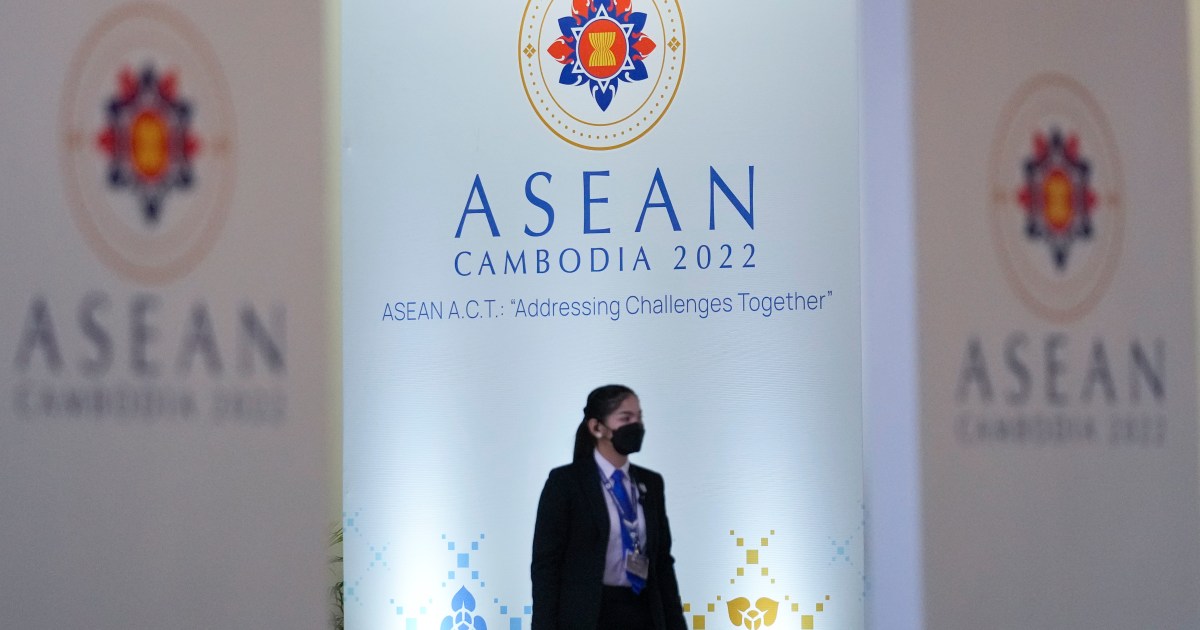‘Reeks of profiling’: US ‘no-fly’ list appears to target Muslims
Disappointment, not surprise. That’s how Mayor Mohamed Khairullah of Prospect Park, New Jersey, reacted to a report this month that indicated Muslims are vastly over-represented on travel watch lists maintained by the United States government.
Khairullah’s name was among the 1.47 million entries that “regard Muslims” on a leaked set of 2019 travel watch lists, according to an analysis by the Council on American-Islamic Relations (CAIR).
Some of those names are on the infamous “no-fly” list, which bars air travel. Others are on the so-called “selectee” list, which designates travellers for extra scrutiny.
Both lists are subsets of the wider Terrorist Screening Center (TSC) database, a consolidated catalogue created and maintained by the Federal Bureau of Investigation (FBI) to identify threats in the wake of the September 11, 2001, attacks.
The FBI has long kept the contents of the database secret. But CAIR obtained leaked files belonging to the database, and its report confirms what many in the Muslim community have long known: that they have been disproportionately represented.
According to its analysis, released last week, CAIR estimates that 98 percent of the names on the lists reviewed were of Muslim origin.
“It shows me the Muslim and the Arabic community — which has been a positive contributor — and members of our local communities are going to always be looked at as potential hostiles,” Khairullah told Al Jazeera. “It speak to the deep racism in the system … so it’s deeply disappointing.”
Invited to the White House, then rejected
Khairullah — who is originally from Syria and has served as Prospect Park’s mayor since 2005 — said his presence on the list has shed light on incidents he has experienced.
In May, while travelling to the White House to join hundreds of fellow Muslims for an Eid celebration, the mayor received a call informing him that he did not have security clearance to attend the event, per the Secret Service.
“The crazy part is, I’ve been [a mayor] for 17-plus years,” he told Al Jazeera. “I’ve served the community. I come into contact with a lot of high elected officials.”
Khairullah ultimately returned home. But other elected officials expressed outrage at his exclusion: New Jersey Senators Bob Menendez and Cory Booker even wrote a letter to the director of the Secret Service.
Six weeks later, Khairullah said he has received “zero response” as to why he was denied access to the White House, save for a brief statement to the press from the Secret Service confirming his denial.
When asked by Al Jazeera why Khairullah was turned away and if he would be able to attend future White House events, the Secret Service’s Chief of Communication Anthony Guglielmi said in a statement: “While we regret the inconvenience this may have caused the mayor, we do not comment on security measures or access protocols for the White House in order to maintain the highest level of integrity for our protective operations.”
Khairullah said he was also detained for hours in 2019 at John F Kennedy International Airport in New York, where he was questioned and made to turn over his phone.

Legal recourse limited, activists say
Civil rights groups have long condemned the existence of the government “terrorism” and travel watch lists, saying they ensnare innocent people and place undue barriers on travel and daily life.
The FBI shares its database across US government agencies and with law enforcement throughout the country. Advocates say that sharing the list with foreign countries and airlines has also resulted in individuals being detained and questioned by outside governments.
For years, those affected by the lists have sought legal recourse. In 2020, three Muslim men brought a lawsuit all the way to the US Supreme Court, alleging they had been placed on a “no-fly” list for refusing to surveil their own communities.
The court ultimately ruled that individuals could sue for damages related to being on the list, beyond just seeking the removal of their names.
In 2015, the government also created a new “redress” system to address constitutional complaints related to the lists.
Under the system, the Department of Homeland Security is supposed to answer complaints with confirmation of whether a person is included on the list, as well as a brief summary of why — so long as the explanation does not compromise national security or law enforcement interests. Individuals can then dispute their inclusion.
The American Civil Liberties Union (ACLU) at the time claimed the process fell woefully short. In subsequent lawsuits, plaintiffs have said efforts to challenge their inclusion on the lists have proven futile.
Gadeir Abbas, a lawyer with CAIR, told Al Jazeera the group is currently representing about 50 people in lawsuits related to the travel watch lists and has provided legal services to hundreds of others.
“For years, we’ve known, through direct experience that the FBI is using the list against Muslims and the list they are making is a list of Muslim names,” Abbas said.
“But when a leaked copy of the list came to us, even we were shocked by just how obviously Muslim the list was.”
List leaked by hacker
The list became public in January, with the publication The DailyDot first reporting on the leak.
A Swiss hacker had allegedly located the 2019 “no-fly” list on an airline’s unsecured server, containing 1.5 million names. The hacker also discovered the “selectee” list, which contained considerably fewer names.
For its part, the FBI declined to comment on CAIR’s report but referred Al Jazeera to a statement it released earlier this year.
“On 19 January 2023, the FBI was notified of a potential data breach of information held by a privately held airline company, including purportedly sensitive government information,” the statement said. “To be clear, no US Government systems were compromised or breached. The FBI has no further comment on this matter.”
The agency referred further questions to its Terrorist Screening Center website, which maintains that no one can be added to the list because of “race, ethnicity, religion, beliefs or activities protected by the First Amendment, guesses or hunches”.
The FBI said the list is regularly overseen by lawyers, “privacy personnel” and external offices including the Office of Inspector General, the Government Accountability Office and the Privacy and Civil Liberties Oversight Board.
The FBI also said the majority of those in the TSC database are “not Americans and they have no known connection to the US”.
For its part, CAIR has upped its calls for President Joe Biden to do away with the TSC completely, saying it is a relic of the rampant Muslim monitoring and discrimination that began in the early 2000s.
“The Biden administration, just like prior administrations, have the unquestioned ability to get rid of this. This is a national security program that Congress never passed a law [to create],” said Abbas, the lawyer with CAIR. “This was the FBI, the CIA and other national security agencies doing this of their own initiative, and it’s been a boondoggle from the start.”
For Mayor Khairullah, the report indicates that policies that have singled out Muslims for 20 years will continue to reverberate.
“It reeks of profiling,” he said. “And it gives me a sense of uneasiness as to what my children might be facing in the future.”



